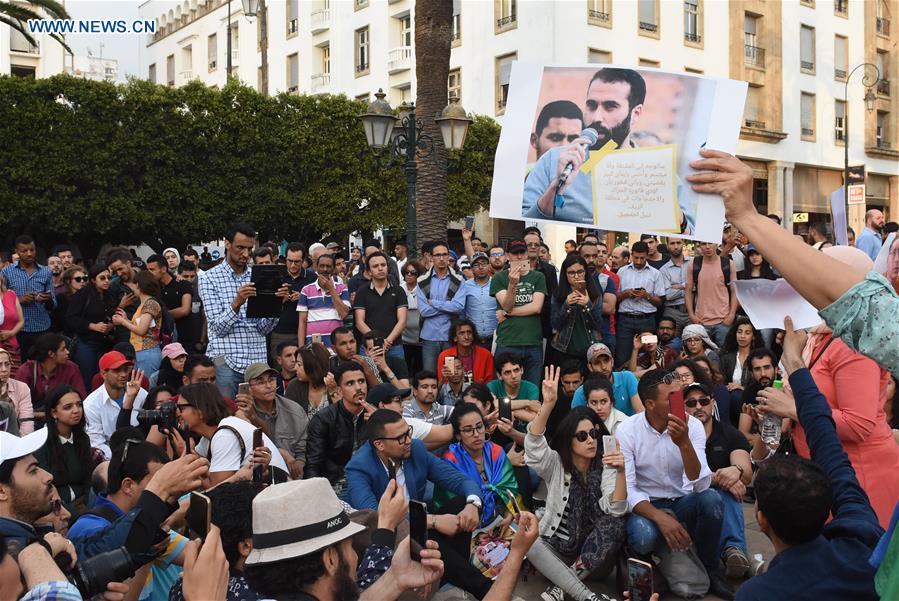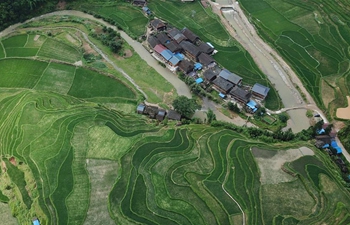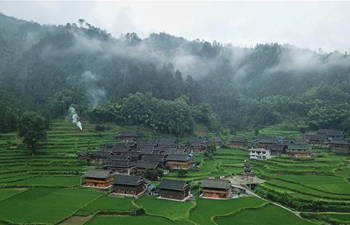
People gather in front of the Moroccan Parliament demanding the release of Nasser Zefzafi and other leaders of the protest movement in Rabat, Morocco, on June 27, 2018. Late on Tuesday, Nasser Zefzafi, figurehead of the protest movement, along with three other leaders, was handed 20 years' imprisonment. (Xinhua/Aissa)
RABAT, June 27 (Xinhua) -- A Moroccan court sentenced 53 protesters to up to 20 years in prison over unrest in 2016, sparking wide outrage and condemnation in the North African kingdom.
Late on Tuesday, Nasser Zefzafi, figurehead of the protest movement, along with three other leaders, was handed 20 years' imprisonment.
As part of the same verdict, another 49 people were sentenced to jail terms of one to 15 years, along with fines, at the Casablanca Court.
The heaviest charge among the convicts was undermining public order and threatening national unity.
Soon after the verdict, hundreds took to the streets in Zefzafi's home city, the epicenter of the protest movement, to denounce the jail sentences.
On Wednesday, sit-ins were staged in several cities, including Rabat, Casablanca and Agadir, criticizing the court decisions, and calling for freedom for the convicts.
Similar criticism filled social media, as thousands of users replaced their profile photos with a black image, deeming the sentences as "shame" and "injustice."
The Moroccan Association of Human Rights described the judgement as a "mockery of justice," while numerous Moroccan media decried the sentences.
Three opposition left-wing parties said at a joint news conference that the sentences are "cruel" and "unfair," warning that they "threaten the stability of the country."
However, Minister of State for Human Rights Mustapha Ramid said in a post on Facebook that the verdicts, which are issued by the judiciary, cannot be disputed, adding that these cases will be re-examined before the court of appeal.
"I hope that more equitable judgments will be issued on this issue, which will instill confidence in the judiciary and establish a new reconciliation with the people of the region," he said.
The protest movement was sparked in October 2016, when fish vendor Mouhcine Fikri was crushed to death after climbing into a rubbish lorry to retrieve his swordfish confiscated by police.
Demanding justice for Fikri evolved into a grassroots movement, requiring greater government investment in the region and more jobs for several months.
After the protests, King Mohammed dismissed the ministers of education, planning and housing and health, as well as other high-profile officials, for falling short of implementing a development plan for the region.
He also urged the government to speed up scheduled development projects, and pardoned some of the hundreds of protesters who had been detained.















